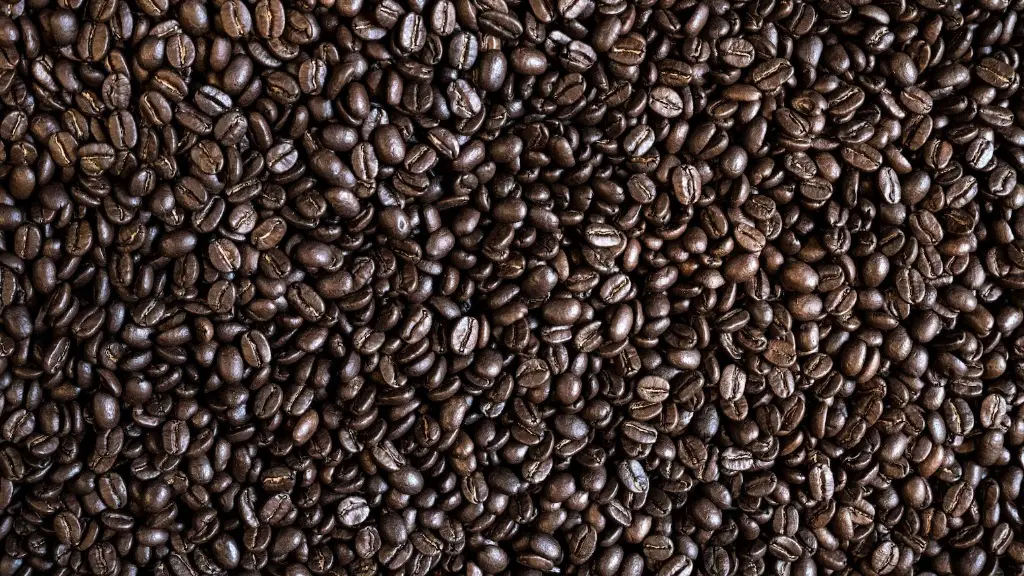Coffee has become a part of many people’s lives, and as such, it can be difficult to know when to put the brakes on caffeine consumption and give yourself a break. Ultimately, there is no ‘right’ answer for everyone, and it is recommended to navigate your own relationship with caffeine to find out when it is best for you to drink coffee.
Caffeine has been linked to a number of positive effects, including increased alertness and improved concentration. However, too much caffeine can lead to restlessness, anxiety, irritability, and rapid or irregular heartbeat. As a stimulant, it has the power to disrupt sleep quality, making it difficult to fall asleep or stay asleep, which can lead to long-term health problems if left unchecked.
Health experts suggest limiting caffeine consumption to no more than 400 milligrams per day – approximately four cups of coffee. Individuals who are sensitive to caffeine or have a medical condition such as anxiety or sleep disorders should avoid coffee completely or limit it to one or two cups per day.
It is also important to note that the signs of caffeine abuse and even addiction can be difficult to recognize. Suddenly cutting back consumption may lead to withdrawal symptoms, such as headaches, fatigue, and irritability. If you are concerned about your own caffeine consumption, it is best to make gradual changes to free yourself from dependency.
Furthermore, if you are pregnant or breastfeeding, it is important to note that caffeine can pass into breastmilk and be harmful to your baby. It is best to avoid coffee altogether during these times, as it can increase the baby’s risk of developing SIDS.
Finally, it is essential to factor lifestyle into the equation. Your body’s reaction to caffeine can vary depending on age, metabolism, and other factors, such as stress, dehydration, and even how much sleep you’ve had the previous night. Furthermore, excessive coffee drinking can take away from the nutrient content of your diet. You may even find yourself feeling jittery or crashing when having more than one cup of coffee a day.
Adjusting Habits
If you’ve already established an unhealthy relationship with coffee, there are a few steps you can take to slowly wean yourself off:
- Consider switching to decaf, or drinking chamomile tea or green tea in lieu of coffee.
- Make sure you’re drinking plenty of water throughout the day, as dehydration can increase your fatigue and make you more likely to reach for caffeine.
- Monitor your caffeine intake and try to avoid drinking it after 1 p.m. or within six hours of bedtime.
- Recognize the triggers that make you reach for a cup or two of coffee; you may need to change your routine or find different ways of dealing with stress or exhaustion.
Listening to Your Body
At the end of the day, it is important to listen to your body and understand your own unique relationship with caffeine. Many people “need” coffee to make it through the day, acting as a crutch or a substitute for proper exercise, nutrition, and rest. If you can listen to your body and take the time to adjust your habits accordingly, you may find that you don’t need caffeine to get through the day after all.
The Social Implications of Caffeine Norms
Caffeine consumption is often shaped by social norms as well. Workplace culture is largely based on coffee-drinking habits, and it can be difficult to say ‘no’ to workplace events that centre around coffee. In most cases, it’s simply a matter of politely declining coffee, explaining your reason for doing so, and offering an alternative. It’s not just in the workplace, either; the sheer ubiquity of coffee shops in many cities means that coffee culture is everywhere, and often involved in social interactions.
Though they may not realize it, many of us have allowed coffee to govern our lives, rather than allowing ourselves to govern how much coffee we’re drinking. It can be difficult to take a step back and recognize that caffeine can be a hindrance rather than a help, but it’s an important part of controlling our habits. When done right, coffee can be a great way to get a boost of energy, but it is important to be mindful of the potential issues that come with overindulging.
Managing Caffeine Withdrawal
If you’ve been relying on coffee for a long time, you may find that it’s difficult to kick the habit. Caffeine withdrawal can often resemble the flu, with symptoms such as headaches, nausea, irritability, and fatigue. The best way to manage these symptoms is to slowly wean yourself off caffeine, and if you are feeling overwhelmed, talk to a medical professional about possible ways to reduce your caffeine intake.
Reducing Your Coffee Intake
No matter what stage you’re at in your coffee-drinking habits, reducing your coffee intake can have a positive impact on your health. Whether it’s something as simple as switching from coffee to decaf, making sure you’re drinking plenty of water, or experimenting with alternatives like herbal teas, the important thing is to recognize when coffee is no longer a help – and giving yourself a break.
Dealing With Caffeine Addiction
If you’ve found yourself struggling with a relentless urge to drink coffee, caffeine addiction could be a real problem. Caffeine addiction is often linked to mental health issues such as anxiety and depression, and in some cases, it can be difficult to recover without professional help. Seeking help from a mental health specialist can offer valuable insight into controlling caffeine consumption.
Lifestyle Changes
Though it is not always easy, making lifestyle changes is often the best way to manage caffeine dependency. Eating a balanced diet, getting enough sleep, exercising, and avoiding stress can have a positive effect on your energy levels and help you feel more in control. Furthermore, it is important to recognize when caffeine consumption is getting out of control and seek to build better habits.



